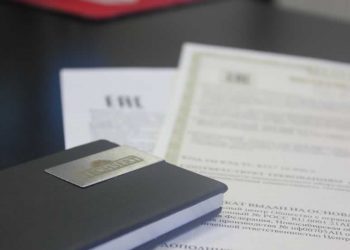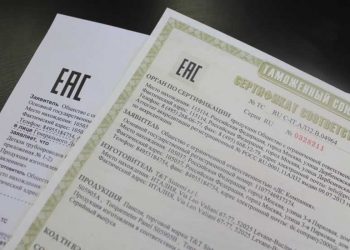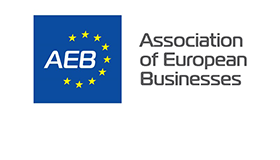Certification for Linoleum in Russia
Linoleum has long held its position as a widely favored floor covering, finding application in diverse settings, ranging from the formal ambiance of government institutions and the practical environments of offices to the comfort and familiarity of residential apartments. Its enduring popularity stems from its versatility and durability. Linoleum is characterized as a roll covering, meaning it is manufactured and installed in continuous sheets, minimizing seams. The composition of linoleum is not fixed but rather encompasses a spectrum of materials, including alkyd-based formulations, nitrocellulose, rubber compounds, polyvinyl chloride (PVC), and even naturally derived components. This variety in composition allows for a wide range of properties and aesthetic options.
Linoleum Gost Certification in Russia: Voluntary and Mandatory Aspects
In the Russian Federation, specifically within the GOST R system of technical regulations, the certification of linoleum is not legally mandated. However, despite the absence of a compulsory certificate of conformity, manufacturers are obligated to issue a declaration of conformity for their linoleum products. This requirement arises because linoleum falls under the purview of goods subject to mandatory declaration. Consequently, while a manufacturer retains the discretion to pursue a voluntary assessment of their product’s quality through voluntary certification, the declaration of conformity remains a necessary prerequisite for placing linoleum on the market.
Interestingly, many manufacturers, driven by the desire to enhance their sales volumes and improve the competitive standing of their products, opt to undergo the voluntary certification procedure in conjunction with the mandatory declaration. This proactive approach signals a commitment to quality and can instill greater confidence in consumers and clients.
The process for voluntary certification mirrors that of mandatory certification and the declaration procedure. Therefore, a GOST R certificate of conformity obtained voluntarily for linoleum serves as a formal assurance of its high quality standards. Manufacturers seeking this certification can obtain it from any accredited certification center within Russia. A notable efficiency exists when a manufacturer chooses to secure both the declaration of conformity and a voluntary certificate concurrently. In such instances, a single set of test protocols is utilized to substantiate both documents, eliminating the need for duplicate testing and associated costs. This streamlined approach means that both the declaration and the voluntary certificate are issued based on the findings of a unified testing process.
Fire Safety Certification for Linoleum: A Non-Negotiable Requirement
In contrast to the voluntary nature of general product conformity certification, fire safety certification for linoleum, like other materials intended for interior finishing and inherently possessing elevated fire hazard characteristics, is strictly mandatory. Furthermore, an application for a standard GOST R certificate of conformity for linoleum will not even be accepted if a valid fire safety certificate is not already in place. This underscores the critical importance placed on fire safety in the context of interior building materials.
A fire safety certificate serves as official confirmation that the tested linoleum product adheres to the stipulations outlined in the Technical Regulations “On Fire Safety Requirements.” This crucial document must contain specific and detailed information, including the flammability group assigned to the tested linoleum, a comprehensive list of the fire safety indicators that the product meets, the documented results of the laboratory tests conducted, and a clear reference to the relevant regulatory acts and standards.
The requirement for a fire safety certificate applies universally to all types of linoleum, without any exceptions. When a manufacturer or supplier applies for fire safety certification, they are required to submit a specific set of documentation. This typically includes the product’s technical documentation, such as technical specifications (technical conditions or TU), the applicant’s Taxpayer Identification Number (TIN certificate), and documentation confirming the legal occupancy of the premises where the linoleum is produced or stored, such as a certificate of ownership or a lease agreement. In addition to these documents, the submission of representative samples of the linoleum products intended for testing is also a mandatory part of the application process. Following the submission and initial review of the application, a fire safety inspection of the provided product samples is conducted by the certification body. Fire safety certificates for linoleum can be obtained from authorized territorial certification bodies. It is worth noting that previously, a separate “hygienic certificate” was a requirement for linoleum. However, these types of documents have since been officially canceled and are no longer issued in Russia.
TechSert Group, thanks to its team of high qualify professionals, helps companies in more than 70 countries to prepare all the necessary documentation and procedures to attain Gost and EAC certifications. Furthermore it can rely on its in-house certification body to assure tje highest level of quality at every step of the certification process.























